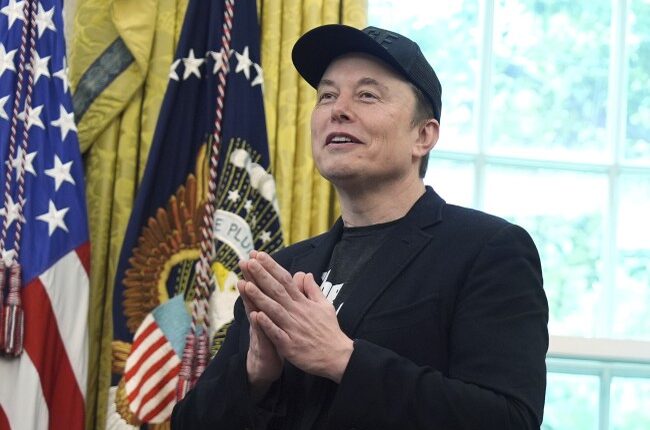
This is a topic on which any number of economists or philosophers could and have written books, but I ran across a tweet that got my mind thinking about it.
So I wondered if I could write a relatively short piece that gets to the nub of the matter.
It’s sort of an interesting thing: libs increasingly understand money less as money and more as a marker of recognition and social status, and feel slighted and insulted when remuneration doesn’t align with their self regard.
Musk’s wealth is not directly determined by ‘how hard… pic.twitter.com/ovv0ENUNMn
— Coddled Affluent Professional (@feelsdesperate) July 28, 2025
Musk’s wealth is not directly determined by ‘how hard he worked’ or whether he’s ‘deserving’ in some abstract social or moral sense. He’s wealthy because he created things of immense value, with the valuations determined by markets. I’m sure you could work twice as hard as Musk digging and filling in fence post holes, but that doesn’t mean you deserve to be twice as wealthy as him.
Takes like this are becoming more common as misplaced self regard and economic illiteracy allow resentments to spiral out of control.
The insight or “feeling” that wealth is unearned is hardly new, and we have to admit that, in most cases throughout most of history, the fact is that accumulated wealth was often unearned.
Medieval serfs would not be wrong to resent the wealth of the lords and ladies for whom they worked. The wealth that almost everybody in the higher classes enjoyed was essentially plunder, often hidden by the fog of time. There were examples of individuals whose contribution to society matched or exceeded the wealth they extracted from others, but more often than not, wealth came by dint of conquest.
That is an oversimplification, but not a grotesque one. We can argue about, for instance, the accumulation of wealth by the Church in medieval times, but if you examine the distribution of wealth within the Church’s hierarchy, the connection between wealth and power is fairly clear. Many of the Bishops never visited or managed their bishoprics, and kings often appointed favored men to the positions because substantial wealth was attached to the posts.
The breakdown of the connection between wealth and the exercise of force began to break down in the late Middle Ages and was largely broken with the development of capitalism. Roughly speaking, wealth accumulation is now a result of creating things of great value.
Why is Elon Musk wealthy? Not because he took wealth from anyone or inherited it from someone who did; he created things that people wanted or needed and provided goods and services that people were willing to pay for.
And, broadly speaking, he does it better than almost anybody alive. The most wealthy, powerful, and technologically advanced government in the world–the United States–has never achieved anything like what SpaceX does on almost a daily basis.
Elon Musk did that. He took a few million dollars, almost bankrupted himself, and built the most successful space delivery service ever conceived. He built a successful car company worth more than the American and European industrial behemoths. Of course, he is wealthy, and he has deployed his wealth to create more wealth.
This connection between wealth and social value is, as far as I can tell, unique in world history. And even in “free market” economies, the connection gets frayed when government gets involved, especially when government does so to provide fake public goods. Money is extracted from the economy and given as subsidies to people or companies that could never generate the wealth on their own, which is just another version of prior, less fair economic systems.
The system is hardly perfect–a lot of executive salaries are arguably inflated beyond reason–but real wealth is accumulated by creating something or at least aiding its creation through investment.
I won’t pretend there aren’t distortions in the distribution of wealth–some having to do with legacy distribution distortions from earlier times, some having to do with government interventions through subsidies, regulations, and tax laws–but broadly speaking, a free market system gives you the “fairest” distribution of wealth of any tried.
New wealth is created. Elon Musk’s wealth exists because he made society as a whole even wealthier. It exists solely because others flock to give him money for services they value more than the money in their pockets.
Working hard at a job at which you could easily be replaced is not worth nothing, but it is not worth Elon Musk-type money. Tires do as much as the engine to make a car roll forward, but tires cost $200 each and engines $5000 because tires are easily replaceable and engines are not. It’s not just the materials that make things valuable–all the components of the engine might be worth a few hundred dollars as raw material. The value is in the fine engineering that makes it all work together efficiently and durably.
Doing hard work is not the same thing as doing valuable work, and money flows to value, not to effort. At least these days.
We should all be glad to see entrepreneurs get wealthy, and the richer the better. That money flows because it is chasing value.
We can argue about inheritance, generational wealth, and all the rest. There is no optimal way to achieve “fairness” in all things, so we should talk about the pros and cons of various policies that affect the distribution of “unearned” wealth as matters of prudence and not fairness. I think the evidence shows that confiscating wealth at death is a bad idea, but it’s hard to argue that the dissolute third-generation heir of a great fortune “deserves” the wealth they have.
But there is no doubt that the accumulation of wealth through the creation of value is an unalloyed good for everybody concerned.









